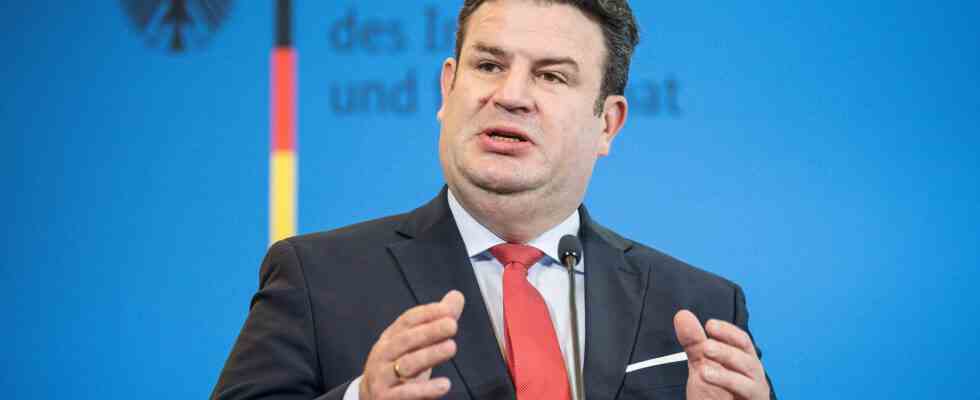Status: 04.03.2023 09:09 a.m
The contribution to the pension insurance should only increase slightly after 2025, explains Minister of Labor Heil. Even after that, he wanted to prevent an excessive increase. Among other things, the stock pension should help.
Federal Minister of Labor Hubertus Heil has assured that the contribution rate in the statutory pension insurance system will only have to be raised moderately even after the upper limit that will apply until 2025 has expired. There are currently five million more employees subject to social security contributions than predicted ten years ago, the SPD politician told the editorial network Germany. As a result, the contribution rate could be kept at the previous level for longer than expected.
“The rate will only increase slightly in the second half of the 2020s,” said Heil. “My goal is to prevent an excessive increase afterwards.” This is possible “if we do our homework on the subject of securing skilled workers” and also “reduce the contributions” through the share pension. He wants to stabilize the statutory pension “in the long term so that people can continue to rely on good old-age provision in the future.”
The traffic light coalition plans to extend the so-called stop line at the pension level, which will secure a level of 48 percent by 2025. The second stop line, which is intended to prevent the contribution rate from rising above 20 percent, should not be continued after 2025. The pension contribution rate has been stable at 18.6 percent since 2018.
Heil defends Lindner’s investment plans
Heil defended Finance Minister Christian Lindner’s (FDP) plan to initially take on debt of ten billion euros in order to invest it in the capital market and use the income from the mid-2030s to dampen pension contributions. “It’s not about any gambles on the financial markets, but about long-term money to strengthen the statutory pension,” said Heil.
Heil was also willing to use additional funds for the share pension, now officially called “generational capital”. “If the finance minister sees scope for further sums, I’ll be happy to look at it,” he said. “But it’s also clear that the more money the finance minister invests sensibly and in the long term in ‘generational capital’, the higher the returns will be later, in order to dampen contributions. As the minister responsible for pensions, I can’t have anything against that.”

